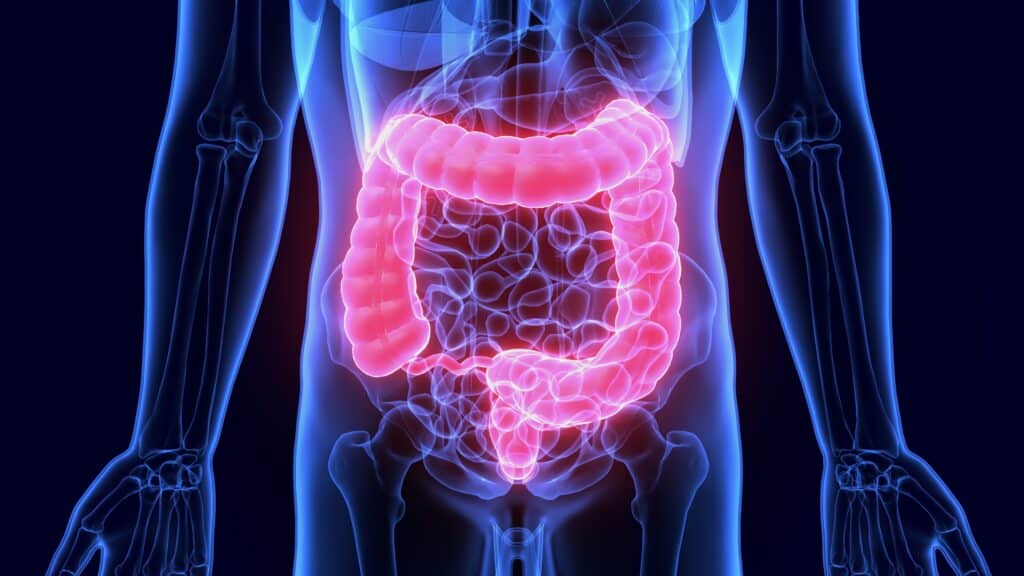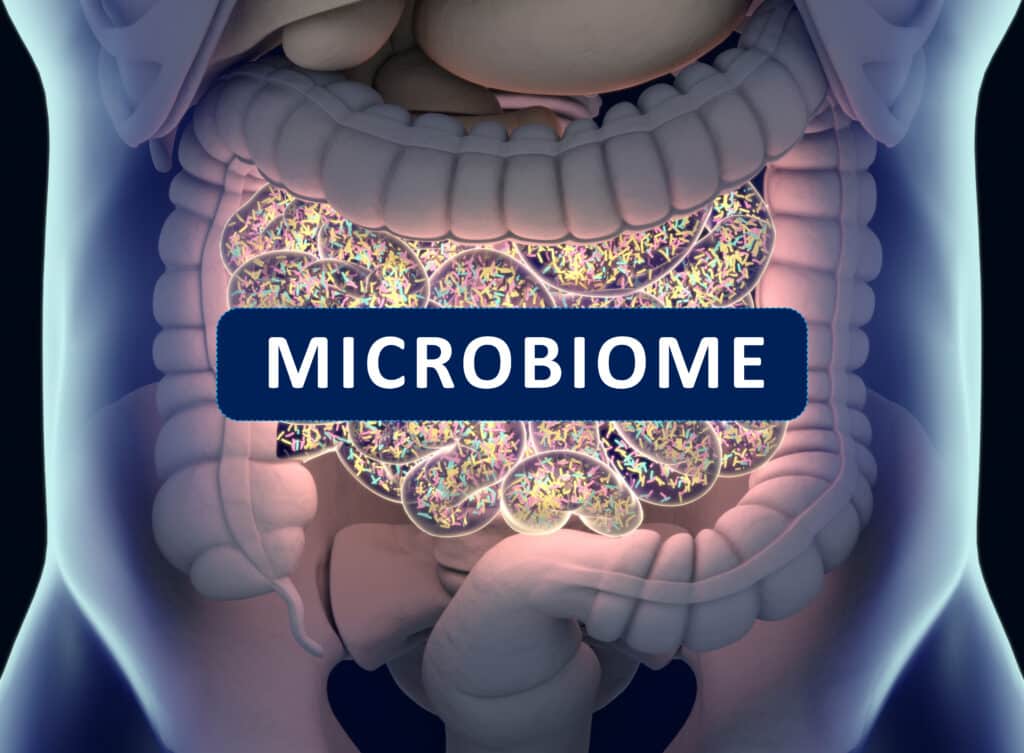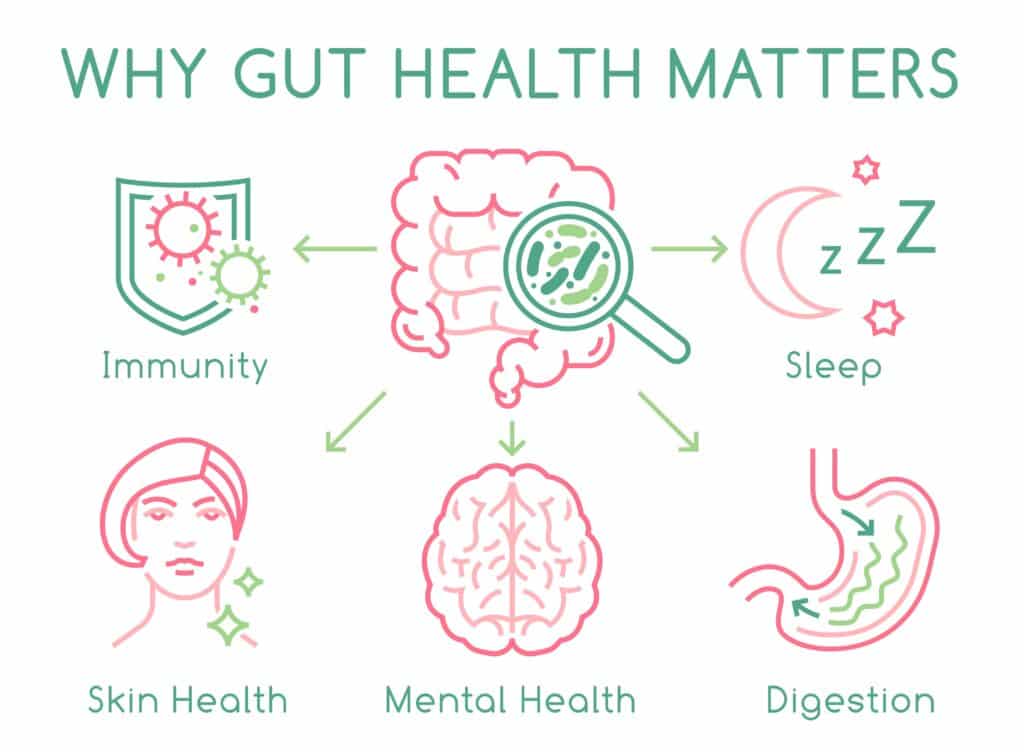
The connection between gut health and mental well-being is becoming an increasingly important topic in both the scientific community and holistic health circles. The gut-brain axis refers to the complex communication network between the gastrointestinal system and the central nervous system, which allows the gut and brain to influence each other. This relationship is essential for maintaining overall health, as it impacts everything from digestion and immune response to mood and cognitive function. As researchers continue to explore this fascinating relationship, the role of the gut in regulating mental health is coming to the forefront.
In particular, the gut is home to trillions of microorganisms, collectively known as the gut microbiota, which play a vital role in supporting not only digestive health but also emotional and cognitive balance. These microorganisms help produce neurotransmitters like serotonin, which are key regulators of mood. This highlights why maintaining a healthy balance of gut bacteria is crucial for mental wellness. An imbalance in the gut microbiome, known as dysbiosis, can lead to a range of physical and mental health issues, including anxiety, depression, and cognitive decline. As we deepen our understanding of the gut-brain connection, it becomes clear that a healthy gut is fundamental to emotional and psychological well-being.
Understanding the science behind the gut-brain axis is essential for anyone seeking to improve their mental health. The bidirectional communication between the gut and brain involves various biological mechanisms, including neural pathways, immune responses, and hormonal signaling. By influencing these systems, gut health directly affects mood, stress responses, and even sleep patterns. This means that improving gut health can have profound effects on emotional well-being. Through dietary adjustments, stress management, and the incorporation of probiotics, individuals can take steps to support their gut and improve their mental health.
The Gut-Brain Axis: A Two-Way Communication System
The gut-brain axis is a fascinating and complex communication system between the gastrointestinal system and the central nervous system. This bidirectional network allows the brain and gut to influence each other’s functions, constantly exchanging signals through multiple biological pathways. These include the nervous system, immune system, and endocrine system (hormones), all of which play essential roles in this intricate connection. The significance of this communication lies in its ability to affect not only digestive processes but also emotions, mood, and cognitive abilities.
The gut, often called the “second brain,” boasts an extensive neural network known as the enteric nervous system (ENS), which is responsible for regulating gut function. What makes this even more remarkable is that the gut produces neurotransmitters like serotonin and dopamine, which are vital for emotional and mental health. Approximately 90% of the body’s serotonin, commonly known as the “feel-good” hormone, is produced in the gut. This emphasizes the direct link between gut health and mood regulation, with disruptions in gut function potentially leading to imbalances in neurotransmitter production that can influence anxiety, depression, and stress levels.
Another key aspect of the gut-brain connection is the role of the gut microbiota. The trillions of microorganisms living in the gut are crucial for maintaining overall health, as they aid in digestion, support immune function, and even influence brain activity. These microorganisms help produce and regulate neurotransmitters, further cementing their importance in mental health. When there is an imbalance in the gut bacteria, known as dysbiosis, it can cause inflammation, disrupt the gut-brain axis, and contribute to mental health issues such as anxiety, depression, and cognitive dysfunction. Maintaining a healthy gut microbiome is essential for both physical and emotional well-being.
How Gut Health Affects Mental Health

Given the strong connection between the gut and brain, it’s no surprise that poor gut health can have a profound impact on mental health. Here are some ways in which gut health influences emotional and psychological well-being:
Neurotransmitter Production
One of the most critical ways in which gut health impacts mental well-being is through the production of neurotransmitters, the brain’s chemical messengers. The gut is responsible for producing about 90% of serotonin, a neurotransmitter that regulates mood, happiness, and feelings of well-being. Similarly, dopamine, another essential neurotransmitter linked to pleasure and reward, is also partially regulated by the gut. When gut bacteria are imbalanced—whether through poor diet, stress, or illness—the production of these neurotransmitters can be disrupted. This imbalance may lead to mood disorders such as anxiety and depression, highlighting the gut’s vital role in maintaining emotional stability.
Inflammation and Its Mental Impact
An unhealthy gut, particularly one suffering from dysbiosis, can trigger an inflammatory response in the body. Chronic inflammation has far-reaching consequences, including its effects on brain health. Research shows that inflammation can impair communication between the gut and the brain, contributing to mental health conditions like depression and anxiety. In fact, several studies have linked chronic inflammation to increased rates of mood disorders, cognitive decline, and even neurodegenerative diseases like Alzheimer’s. Therefore, maintaining a balanced gut microbiota is not only essential for physical health but also plays a critical role in reducing inflammation, thereby protecting mental health.
Stress Response and Gut Health
The gut also plays a significant role in how the body manages stress. A healthy gut helps regulate cortisol, the stress hormone, which keeps the body’s stress response in check. However, when gut health is compromised, it becomes more challenging for the body to manage stress effectively. Dysbiosis can cause a heightened stress response, leading to increased levels of anxiety and stress-related disorders. Additionally, chronic stress can, in turn, disrupt gut function, creating a vicious cycle where poor gut health exacerbates stress, and stress further harms the gut. Strengthening gut health, therefore, can lead to improved stress resilience and better overall emotional well-being.
Immune System and Mental Health
Approximately 70% of the body’s immune system resides in the gut, making it a central player in maintaining both physical and mental health. A balanced immune response is crucial for preventing inflammation and keeping mood disorders at bay. When the gut is compromised, the immune system can become dysregulated, triggering chronic inflammation that negatively affects the brain. This immune dysregulation has been linked to mood disorders like depression and anxiety. By promoting a healthy gut, individuals can support their immune system, which plays a protective role against the mental health consequences of immune imbalance.
Cognitive Function and Gut Health
Beyond mood and emotions, gut health also influences cognitive functions such as memory, attention, and decision-making. The gut microbiota produces metabolites that affect the brain’s ability to function optimally. Research has shown that dysbiosis in the gut may contribute to cognitive impairment and increase the risk of neurodegenerative diseases such as Alzheimer’s. This makes the gut-brain axis a critical factor in not just emotional health but cognitive health as well. A balanced gut microbiome supports optimal brain function, enhancing mental clarity, decision-making abilities, and long-term cognitive health.
By understanding the profound influence gut health has on both the brain and emotional well-being, we can begin to recognize the importance of maintaining a healthy gut for overall mental health.
Gut Disorders and Mental Health
Many individuals with gut disorders also experience mental health issues, further supporting the connection between gut health and emotional well-being. Here are some common gut disorders and their potential impact on mental health:
Irritable Bowel Syndrome (IBS) and Mental Health
Irritable Bowel Syndrome (IBS) is a prevalent gut disorder affecting millions, marked by abdominal pain, bloating, and irregular bowel movements, significantly impacting quality of life. It is linked to mental health issues like anxiety and depression, with the gut-brain axis playing a crucial role. IBS sufferers often have increased sensitivity to stress and emotional triggers, worsening their symptoms. This highlights the importance of a holistic treatment approach that addresses both physical and mental health, focusing on stress management, emotional regulation, and dietary and lifestyle changes.
Leaky Gut Syndrome and Emotional Health
Leaky Gut Syndrome, also known as increased intestinal permeability, is a condition where the lining of the intestine becomes compromised, allowing harmful substances such as toxins, bacteria, and undigested food particles to leak into the bloodstream. This can trigger chronic inflammation, which has been linked to a variety of physical and mental health issues. People with leaky gut syndrome often report symptoms such as brain fog, anxiety, and depression. The inflammation caused by the leaky gut can disrupt the normal communication between the gut and the brain, leading to mental health problems. Addressing leaky gut through dietary interventions, such as reducing processed foods and incorporating gut-healing nutrients like probiotics and fiber, can help alleviate both digestive and emotional symptoms.
Small Intestinal Bacterial Overgrowth (SIBO) and Cognitive Impairment
Small Intestinal Bacterial Overgrowth (SIBO) occurs when there is an excessive amount of bacteria in the small intestine, a part of the digestive system where few bacteria normally reside. This overgrowth can lead to digestive problems, including bloating, diarrhea, and poor nutrient absorption. However, the effects of SIBO extend beyond the digestive tract. Research has shown that SIBO is associated with various mental health issues, including mood disorders, cognitive decline, and chronic fatigue. The malabsorption of nutrients, particularly B vitamins and magnesium, caused by SIBO can impair brain function and contribute to anxiety, depression, and brain fog. Effective treatment of SIBO can help restore gut health and improve mental clarity, energy levels, and emotional well-being.
By understanding the relationship between these common gut disorders and mental health, it becomes clear that addressing gut health is essential for achieving emotional balance. Whether it’s through dietary changes, stress management, or medical interventions, taking care of the gut can have far-reaching benefits for both physical and mental health.
How to Improve Gut Health for Better Mental Health

If you’re looking to support your mental health by improving gut health, there are several strategies you can incorporate into your daily routine. Here are some tips to help you optimize your gut health and promote emotional well-being:
1. Eat a Gut-Friendly Diet
Your diet has a significant impact on the health of your gut microbiota. To support gut health, focus on eating a diverse range of plant-based foods, fiber-rich fruits and vegetables, whole grains, and fermented foods. These foods provide the necessary nutrients to nourish your gut bacteria and promote a balanced microbiome.
- Fermented Foods: Fermented foods like yogurt, kefir, sauerkraut, kimchi, and kombucha contain probiotics, which are beneficial bacteria that support gut health. Incorporating these foods into your diet can help maintain a healthy balance of gut bacteria and improve digestion.
- Prebiotic Foods: Prebiotics are non-digestible fibers that serve as food for beneficial gut bacteria. Foods like onions, garlic, leeks, asparagus, and bananas are rich in prebiotics and can help promote the growth of healthy gut bacteria.
- Limit Processed Foods: Processed foods, high in sugar and unhealthy fats, can negatively affect gut health and contribute to inflammation. Avoiding or limiting these foods can help reduce inflammation and support a healthy gut microbiome.
2. Manage Stress
Chronic stress can wreak havoc on both gut health and mental health. When you’re stressed, your body produces cortisol, a hormone that can disrupt the balance of gut bacteria and increase intestinal permeability. Incorporating stress management techniques like mindfulness meditation, yoga, deep breathing, and regular physical activity can help reduce stress and support gut health.
3. Get Enough Sleep
Sleep is essential for maintaining both mental and physical health. Poor sleep quality or insufficient sleep can negatively impact gut health and contribute to mental health disorders like anxiety and depression. Aim to get 7-9 hours of quality sleep each night to support a healthy gut-brain axis.
4. Stay Hydrated
Hydration is key to maintaining a healthy digestive system. Drinking enough water helps ensure proper digestion and supports the elimination of waste and toxins. Staying hydrated also promotes the health of the gut lining, preventing issues like leaky gut syndrome.
5. Exercise Regularly
Regular physical activity has been shown to promote the growth of beneficial gut bacteria and improve gut health. Exercise also releases endorphins, which can help reduce stress and improve mood. Incorporating moderate exercise into your routine, such as walking, swimming, or cycling, can have a positive impact on both your gut and mental health.
6. Consider Probiotic Supplements
While consuming probiotic-rich foods is an excellent way to support gut health, some individuals may benefit from taking probiotic supplements. Probiotics can help restore the balance of gut bacteria, especially after taking antibiotics or experiencing digestive issues. Consult with a healthcare professional before starting any new supplements.
The Future of Gut Health and Mental Health Research

Ongoing Research into the Gut-Brain Connection
Research into the gut-brain axis has revealed a significant link between gut health and mental well-being, highlighting how gut bacteria, or the microbiome, influence mood, behavior, and cognition by producing neurotransmitters such as serotonin and GABA. These substances impact mood regulation, anxiety, and depression, leading scientists to explore new management strategies for mental health disorders through targeted gut health interventions, potentially involving personalized probiotics or tailored nutrition to support a balanced microbiome.
Personalized Approaches to Mental Health Treatment
Research into the gut-brain axis may lead to personalized mental health treatments that consider gut health, allowing providers to recommend specific probiotics or prebiotics based on an individual’s microbiome. This shift could enable precise interventions and dietary changes that promote gut health as part of mental health care plans. Certain probiotics are already being explored for their effects on anxiety and depression, suggesting future advancements could yield better outcomes and fewer side effects than traditional medications.
Supporting Gut Health for Mental Well-Being
Research highlights the significance of gut health for mental well-being, as an imbalanced gut microbiome, or dysbiosis, can lead to mood disorders, cognitive decline, and heightened stress. A diet rich in fiber, fermented foods, and prebiotics supports beneficial bacteria, while lifestyle changes like regular exercise, stress management, and sufficient sleep further promote gut health. For those facing mental health challenges, addressing gut health may be a critical yet often neglected aspect of overall wellness.
The Future of Gut-Brain Research
Research into the gut-brain relationship is revealing potential treatments for mental health disorders through the gut microbiome. Clinical trials are examining specific bacteria strains that affect mood and behavior, showing promising early results. Modifying the microbiome via diet or medications could enhance mental health outcomes, potentially transforming the treatment of anxiety, depression, and neurodegenerative diseases. The significance of the gut-brain axis in mental health care is increasingly acknowledged.
Conclusion
The connection between gut health and mental health is undeniable. The gut-brain axis plays a crucial role in regulating mood, stress levels, and cognitive function, making gut health an essential factor in maintaining mental well-being. By focusing on a gut-friendly diet, managing stress, staying hydrated, and incorporating probiotics into your routine, you can support both your gut and mental health.
At Beyond Healing Counseling & Wellness, we believe in a holistic approach to mental health that includes nurturing your gut health. If you’re struggling with anxiety, depression, or other mental health issues, improving your gut health could be the key to achieving balance and well-being. Embrace the power of the gut-brain connection and take proactive steps to support your overall mental health and wellness today.


